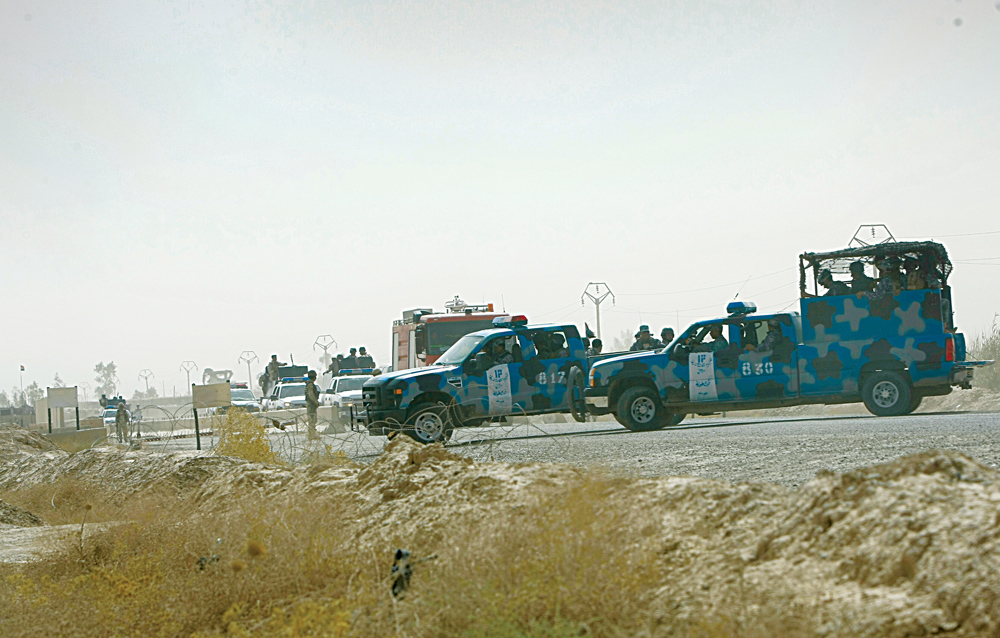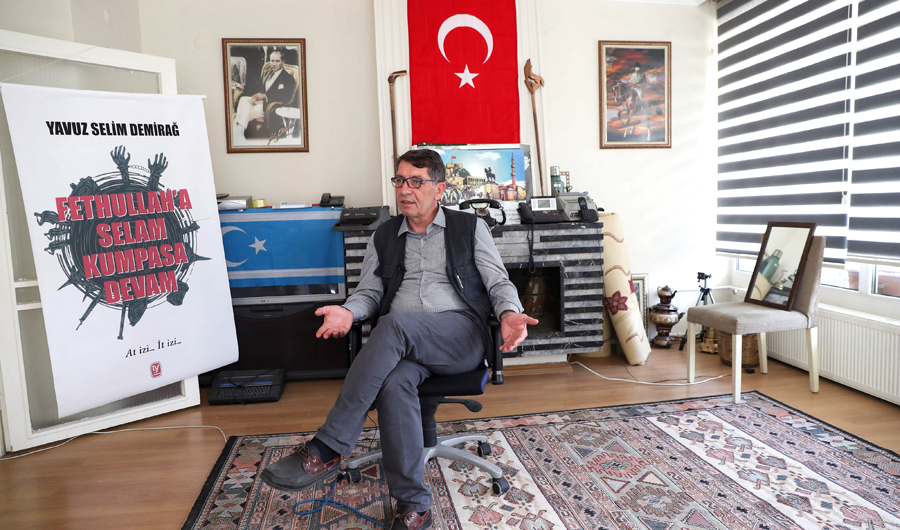ABU DHABI: They are among the most dedicated and formidable opponents of the Tehran regime, but since their move from Iraq to Albania as part of a refugee resettlement program, the People’s Mujahedin of Iran have all but fallen off the world’s radar.
Despite being under constant threat and facing pressure to lie low in their new surroundings, the group remains one of the biggest and best organized in opposition to the Iranian leadership.
Now, however, with tensions between Iran and the US rising and no sign of weakening in Washington’s “maximum pressure” approach, the group — known variously as the People’s Mojahedin Organization of Iran (PMOI) or Mojahedin-e Khalq (MEK) — has a chance to prove its political relevance as the Tehran regime faces possibly its biggest crisis since the Iran-Iraq war.
The suspicions that many Middle East observers harbor about the intentions of the MEK, partly due to claims of it being “a cult built around” two leaders, fail to square with the latest facts. On the contrary, the MEK has probably not received due credit for its renunciation in 2001 of violence as a means of regime change in Tehran, in addition to its commitment to a policy of peaceful coexistence and a non-nuclear Iran.
For a variety of reasons, the vicissitudes of the MEK — from its role in the Iran-Iraq war (1980-1988) to the UNHCR-assisted resettlement of its members in Albania — have been one of the Middle East’s most underreported stories. Even now, little information can be gleaned from open sources about the status of the resettled MEK members.
In a rare media interview, one resettled MEK official told Deutsche Welle: “If the Iranian secret services discover I am in Albania, my life as well as the lives of my friends and family in Iraq will be in jeopardy.” The German news website said the man used an alias among other security precautions, adding that its reporters were not allowed to take any photos of the residential quarters.
The secretiveness is not unwarranted: Europe-based Iranian dissidents continue to be in the crosshairs of an intelligence ministry whose tentacles extend across the Middle East and beyond. Last year Albania expelled two Iranian diplomats, including the ambassador, presumably in connection with alleged plans to assassinate exiled Iranian dissidents in Europe. Suspected terror plots linked to the Quds Force, an affiliate of the Islamic Revolutionary Guard Corps (IRGC), have also been disrupted in France, Bosnia, Bulgaria, Germany, Kenya, Turkey and Bahrain.
Believed to have been founded around 1965, the MEK fused Islamic and Marxist ideas in its opposition to the rule of the Shah, Mohammad Reza Pahlavi. The first members were mostly young intellectuals and academics who differed from the conservative clerics’ view that the struggle in Iran was essentially between atheism and Islam. They viewed the political struggle as one between an autocratic regime and an oppressed population comprising different faiths
and ethnicities.
Soon after the fall of the shah in 1979, the MEK, under the leadership of Massoud Rajavi, developed differences with the government dominated by the followers of the populist cleric Ayatollah Ruhollah Khomeini. Rajavi and other MEK members, who commanded the support of Iranian socialist and Kurdish political parties, were prevented from running for office for failing to endorse the “constitution of the Islamic Republic.” An untold number of MEK activists fled to neighboring Iraq as Khomeini consolidated power, purged opponents and swept away the institutions of the ancien regime.
In 1981, Khomeini sacked Abolhassan Banisadr as president and launched a fresh wave of arrests and executions. Rajavi and Banisadr made a dramatic escape from a Tehran air base to Paris, where they set up the National Council of Resistance of Iran (NCRI) “with the intent to replace the Khomeini regime with the ‘Democratic Islamic Republic.’”
In 1983 the NCRI, controversially but not surprisingly, sided with Iraqi leader Saddam Hussein during the Iran-Iraq war, and three years later, amid attempts by Iran to have MEK members expelled from Paris, Rajavi relocated to Iraq to set up a base near the Iranian border. From then on, Camp Ashraf, in the Diyala governorate, served as a sanctuary for thousands of members and sympathizers of MEK.
After the 2003 invasion of Iraq and overthrow of Saddam, occupying US forces disarmed the residents of Camp Ashraf and signed a formal agreement that promised them the status of “protected persons” under the Fourth Geneva Convention, which outlines the rules for protecting civilians in times of war.
But those pledges came up short when Iraqi security forces and local proxies of the IRGC, driven by old grudges, began to launch violent attacks that inflicted severe casualties and exposed the vulnerability of Camp Ashraf in the post-Saddam era.
Some camp residents later claimed they were also subjected to psychological abuse, such as denial of essential supplies, medical treatment for the seriously ill, and exposure to high noise levels from loudspeakers.
US officials decided to begin transferring MEK families to a new location in Baghdad: Camp Liberty, which had earlier served as a US base. However, the violence directed at the MEK failed to subside, with Camp Liberty arrivals proving an easier target for Iran-backed groups such as the Badr Brigade.
Following an attack in February 2012 that claimed nine more lives, the US invited the UNHCR, the UN refugee agency, to find a safe third country for resettling MEK members and their families. According to reports, the only country that agreed to take in most of the Camp Liberty residents was Albania, with Germany absorbing the remaining 10 percent. The same year, Washington removed the MEK from its list of designated terrorist organizations.
In September 2013, Maryam Rajavi, who has led the MEK since the mysterious disappearance of her husband, Massoud, in 2003, announced the deaths of 52 refugees in a single attack on Camp Ashraf. “The tragic events were a somber reminder of the need to conclude the final phase of the relocation process without further delay,” Gyorgy Busztin, acting UN envoy to Iraq, said. The same year, an official agreement was reached on the resettlement of 3,000 Iranian political refugees in Albania.
After the 2013 parliamentary elections in Albania, the resettled Iranians became a domestic political issue, with the new government seeing their presence as an irritant in relations with Iran. Nevertheless, the resettlement operation is regarded by the UNHCR as one of the most successful humanitarian transfers in recent history. It continued well into 2017, with the relocation of 2,195 Camp Liberty residents in 2016 and another 1,963 in 2017, resulting in a total of 4,158 resettled Iranian refugees, according to the Albanian Authority for Statistics (the numbers remain disputed).
For its part, the Iranian regime, wary perhaps of a future challenge from the MEK, has continued its undeclared campaign of attacks and intimidation. Some in the inner circle of Supreme Leader Ayatollah Ali Khamenei possibly fear retribution at the hands of MEK members resettled in Albania in the event of a regime collapse.
Whatever the rationale behind the apparent paranoia, as an Iranian opposition group whose members are arguably more dedicated than those of other organizations, the MEK may yet have a role in the country’s political future.




